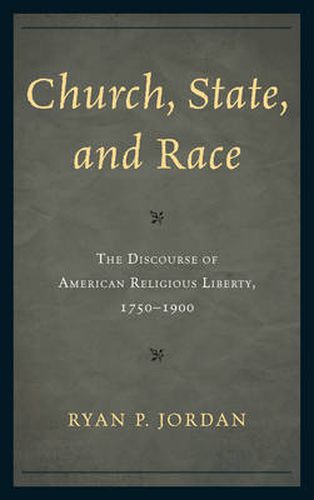Readings Newsletter
Become a Readings Member to make your shopping experience even easier.
Sign in or sign up for free!
You’re not far away from qualifying for FREE standard shipping within Australia
You’ve qualified for FREE standard shipping within Australia
The cart is loading…






This book uses the discourse of religious liberty, often expressed as one favoring a separation between church and state, to explore racial differences during an era of American empire building (1750-1900). Discussions of religious liberty in America during this time often revolved around the fitness of certain ethnic or racial groups to properly exercise their freedom of conscience. Significant fear existed that groups outside the Anglo-Protestant mainstream might somehow undermine the American experiment in ordered republican liberty. Hence, repeated calls could be heard for varying forms of assimilation to normative Protestant ideals about religious expression. Though Americans pride themselves on their secular society, it is worth interrogating the exclusive and even violent genealogy of such secular values. When doing so, it is important to understand the racial limitations of the discourse of religious freedom for various aspects of American political culture. The following account of the history of religious liberty seeks to destabilize the widespread assumption that the dominant American culture inevitably trends toward greater freedom in the realm of personal expression.
$9.00 standard shipping within Australia
FREE standard shipping within Australia for orders over $100.00
Express & International shipping calculated at checkout
This book uses the discourse of religious liberty, often expressed as one favoring a separation between church and state, to explore racial differences during an era of American empire building (1750-1900). Discussions of religious liberty in America during this time often revolved around the fitness of certain ethnic or racial groups to properly exercise their freedom of conscience. Significant fear existed that groups outside the Anglo-Protestant mainstream might somehow undermine the American experiment in ordered republican liberty. Hence, repeated calls could be heard for varying forms of assimilation to normative Protestant ideals about religious expression. Though Americans pride themselves on their secular society, it is worth interrogating the exclusive and even violent genealogy of such secular values. When doing so, it is important to understand the racial limitations of the discourse of religious freedom for various aspects of American political culture. The following account of the history of religious liberty seeks to destabilize the widespread assumption that the dominant American culture inevitably trends toward greater freedom in the realm of personal expression.